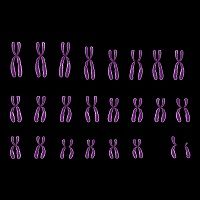Article
Pharmacogenetics Helps Fine-Tune Warfarin Dosing in Kidney Disease
Author(s):
Though warfarin has long been the mainstay of anticoagulation in atrial fibrillation (AF), dosing is complicated by a host of factors, and the drug has a famously narrow therapeutic range. One way to fine-tune warfarin therapy is to account for genetic variation.

Though warfarin has long been the mainstay of anticoagulation in atrial fibrillation (AF), dosing is complicated by a host of factors, and the drug has a famously narrow therapeutic range. One way to fine-tune warfarin therapy is to account for genetic variation. Melanie Joy, PharmD, PhD discussed the use of pharmacogenomics to target optimal warfarin therapy during an AF-focused session on Nov 14, 2014 at Kidney Week.
Joy, assistant professor of pharmacology at the University of Colorado-Denver, related that in addition to the numerous drug-drug and drug-food interactions that can affect warfarin pharmacokinetics, a variety of genetic polymorphisms have been found that can also have a significant effect on warfarin metabolism.
In reviewing the various single-nucleotide polymorphisms (SNPs) that contribute to person-to-person variability in warfarin dosing, Joy related that cytochrome P450 2C9 (CYP2C9) SNPs 2and 3 are present primarily among Caucasians, while SNPs 5, 6, and 11 are more prevalent in African Americans. All of these SNPs result in impaired metabolism of warfarin and lower dose needs. The phenotype for the VKORC1 SNP is reduced enzyme expression, also resulting in a lower warfarin dosing requirement. Warfarin has H and S enantiomers; the S enantiomer is metabolized by CYP2C9 and VKORC1, thus accounting for about 30% of the dose variability in Caucasians and Asians, but only about 10% of the variability in African Americans.
Bringing the pharmacogenetic knowledge to clinical practice, researchers have compiled algorithms to guide warfarin dosing that take both clinical and pharmacogenetic factors into account. Both clinical-only and combined clinical and genetic-based calculators are available to help clinicians arrive at an estimated warfarin dose.
Attempting to resolve the additional clinical utility of genetic data, the International Warfarin Pharmamacogenetics Consortium (IWPC) examined the use of a fixed dosing strategy compared with a clinical or a clinical + genetic calculator. The IWPC study used 4,043 patients for a derivation cohort and an additional 1,009 in a validation cohort, and examined VKORC1, and several SNPs of CYP2C9. Results showed that at the extremes of dosing requirements (<21 or >49 mg/week of warfarin), the clinical + genetic calculator did a better job of keeping patients in the therapeutic range. However, for patients in the middle dosing range, there was no significant difference between arms.
Joy also reviewed a subgroup analysis for African Americans, showing that the clinical algorithm outperformed the genetic one for this group; however, Joy said, this was because SNPs had been targeted which are not active in the African American population.
Another study, U-PACT, compared genotype-guided vs. standard dosing in the African American population. In this case, a novel SNP was used to adjust for warfarin dosing and accounted for 26% of dose variability. Further fine-tuning of warfarin dosing, Joy said, should continue to improve predictive ability, adding a “personalized medicine” component to warfarin dosing.
Warfarin adjustment in chronic kidney disease (CKD), said Joy, should take into account glomerular filtration rate (GFR). As GFR diminishes, so do warfarin dosing requirements. One study examining this question found that moderate renal impairment resulted in a 9.5% lower dose requirement, while severe CKD required a dose reduction of 19%. A genetic variation, though, may result in the need for an even lower dosing of warfarin, allowing for more precise titration in this population.





